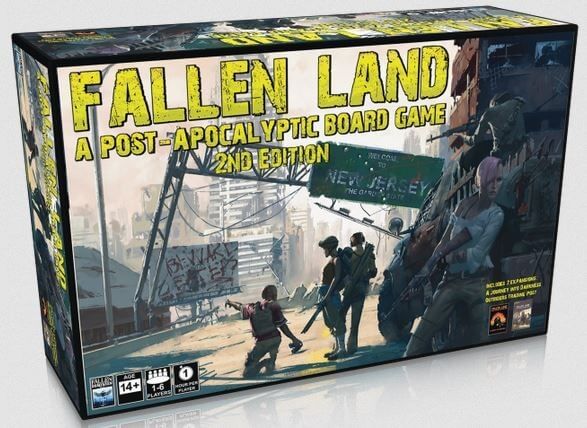
In Search of Planet X
In Search of Planet X is a deduction and exploration game where players become astronomers on an intriguing mission. Set in the outer reaches of the solar system, the game revolves around the search for a mysterious planet that could have significant impacts on the orbits of dwarf planets. Through a companion app, a new scenario is generated with each game, defining the location of Planet X and the celestial objects that must be observed. Participants must use their logical thinking skills to gather information and interpret the clues as they compete to discover the presence of this enigmatic planet. The game combines strategy and analysis, bringing an engaging and dynamic challenge, where the players' creativity is essential to uncover the secrets of space. Get ready for a fascinating journey in which every decision can lead to discovery or frustration.Artists: James Masino; Michael Pedro
Designers: Matthew O'Malley; Ben Rosset
Date: 2020
Note: 8
Mechanics: Deduction, Action Points
Topics: Science, Science Fiction
Table of Contents
- How to Play
- Tips for playing
- Game mechanics
- Game components
- Additional Information
OBJECTIVE OF THE GAME

Tips for playing
Here are some tips for doing better in the game In Search of Planet X:
- Pay attention to the astronomical clues, as they can help narrow down the possible locations of Planet X.
- Take a good look at the other players' movements, this can provide valuable clues as to what they have already discarded.
- Don't neglect to use the complementary app; it helps you keep track of information accurately and keep the game fair.
- Balance your time between making deductions and advancing in your research; every action counts in the game.
- Confirm and eliminate hypotheses regularly, this helps to narrow down possible locations for Planet X more quickly.
- Try to use your research and theories efficiently, as turns are limited for each player.
- Focus on completing secondary objectives, they can bring valuable points and important advantages at the end of the game.
- Remember that some actions have different time costs; plan your next move carefully to optimize your moves.
Video about the game
GAME mechanics
- Deduction - In Search of Planet X is a game of logical deduction, where players use clues provided throughout the game to determine the exact location of Planet X on a board divided into sectors. Each sector can contain planets, asteroids, comets or be empty. The clues are obtained through research and help eliminate possibilities, so that players can infer the position of Planet X based on logic and deduced information. It is essential to cross-check data and make accurate notes in order to reach the correct conclusion.
- Action Points - Players have a limited amount of time points to spend on actions during their turns. Possible actions include "Search" to get clues about objects in adjacent sectors, "Scan" to check a larger area for specific types of objects, and "Locate" Planet X by submitting an attempt to guess its exact position. Each action consumes a specific portion of time points, and players need to manage this resource strategically to optimize their chances of success before their opponents solve the Planet X riddle.
Game components
See all the items in the game below In Search of Planet X:
- 1 Earth tray
- 1 Solar System tray (double-sided)
- 1 wooden sun disk
- 4 individual pawns (mini observatories)
- 4 personal screens
- 4 advanced mode cards
- 48 theory markers (12 per player)
- 8 poll markers (2 per player)
- 1 notebook (double-sided)
Additional Information
- Ludopedia link: https://ludopedia.com.br/jogo/the-search-for-planet-x
- Link Tabletopia:
- Amazon Brazil link: Comprar Em Busca do Planeta X
- Amazon USA link: Comprar Em Busca do Planeta X


